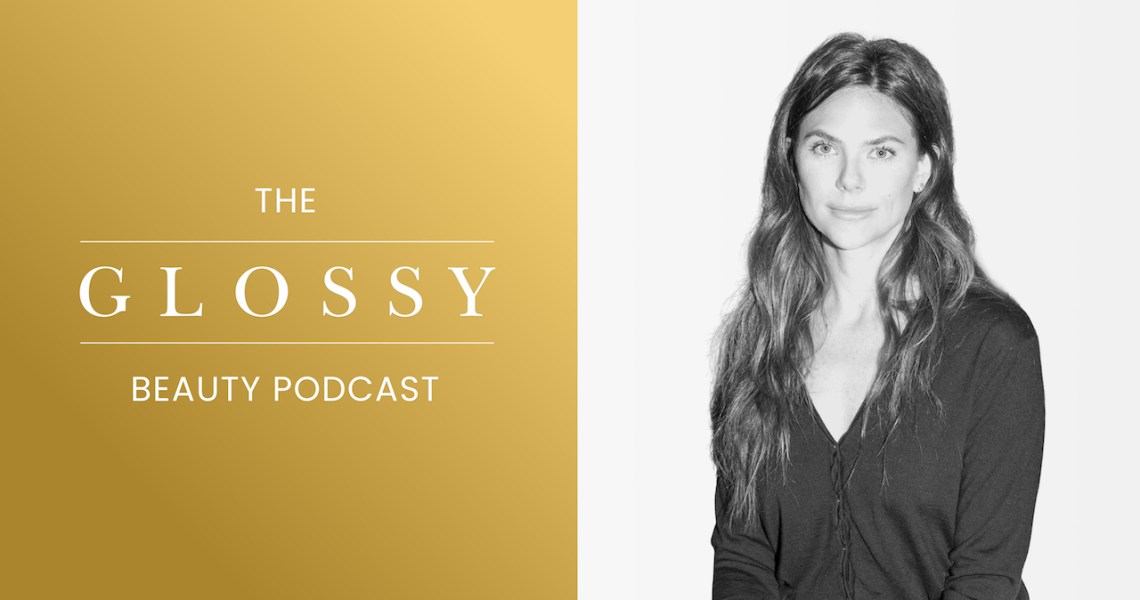Subscribe: iTunes | Stitcher | Google Play | Spotify
Amanda Chantal Bacon is often ranked alongside Gwyneth Paltrow when it comes to seminal figures in wellness. But that’s not to say she’s fully comfortable with it. “I try to stay out of the fray of what the wellness world has become, which is odd, because I’m smack dab in the center of it and have probably contributed to a lot of everything that I shy away from now,” Chantal Bacon said on this week’s episode of the Glossy Beauty Podcast.
“And so what can I do — I do feel like I was there and helped create a bit of this beast — to really stay true to the mission and to spread that to my team?”
Talking about it in earnest is one way to address the problem. Chantal Bacon also seeks to live out her values with Moon Juice, which opened its first shop in Venice, California, in 2011 and carries products that offer more than what you’ll find in just about any grocery store or gas station these days.
“What would be the difference between a Moon Juice with some type of pasteurization on it in a cute juice shop and a juice for maybe $2.99 in a grocery store that’s the same blend and organic?” she asked. “It would really be the difference of a label. So that didn’t feel worthwhile. Herbs, though, that was something that when you scale it, it makes sense. Your costs go down. You’re able to reach more people. Supplements are actually something that you need scale for safety reasons alone.”
In the latest Glossy Beauty podcast, Chantal Bacon discussed Moon Juice’s focus on research over marketing (“people are always surprised to find out that we really don’t spend any money on marketing”), the company’s use of Instagram and its move into beauty and skin-care products.
Ad position: web_incontent_pos1
Here are a few highlights from the conversation, lightly edited for clarity.
Leveling up from the local health food store
“Going anywhere where wellness was a term was a pretty janky health food store with bad lighting and loud sounds and strange smells. So that was really one of the intentions with Moon Juice, was to bring this next level of health, which I wasn’t finding in the Vitamin Barns, with the bulk bins of the world. It was to bring some of that fine dining accuracy that I’d come to know and trust and employ every day in my own kitchens and where I was working, and really missing that in the health world. Every time you got a juice it was completely different. Sometimes there were bugs in the bulk bin. It was just that angle of aesthetic and precision that was missing.”
Herbs and supplements set the product apart
“There are great juice companies out there that sell to Whole Foods and any grocery store, [and] any airport around the country, and they’ve got organic green juice blends. So truly, what would be the difference between a Moon Juice with some type of pasteurization in it in a cute juice shop, and a juice for maybe $2.99 in a grocery store that’s the same blend and organic? It would really be the difference of a label. So that didn’t feel worthwhile. Herbs, though, that was something that when you scale it, it makes sense. Your costs go down. You’re able to reach more people. Supplements are actually something that you need scale for safety reasons alone. The amount of energy that we put into sourcing and testing, I couldn’t do as a small company. And I knew we needed that to truly come out with the products that I wanted.”
All is not well with wellness
“I think that is my criticism of the wellness world, if there was one. I think there’s so many wonderful things about wellness spreading, but the underbelly of it is this notion of ‘it is for the 1% to live forever by themselves in their castles, looking young.’ And so what can I do — I do feel like I was there and helped create a bit of this beast — to really stay true to the mission and to spread that to my team? And to dig deeper into myself and look at how we can swing this thing the other way? And why do we want to be well? What is the point of living longer and feeling better and being stronger?”
Research over marketing
“People are always surprised to find out that we really don’t spend any money on marketing. We’ve got a creative little bubble that is very lean, that goes on Instagram, which is our main marketing channel. I look at every post, I’m tweaking every post. It was not so long that I was actually writing and posting each post. And we really do spend our energy and our time and our money on sourcing and testing for potency and safety. And I hope that never changes.”




